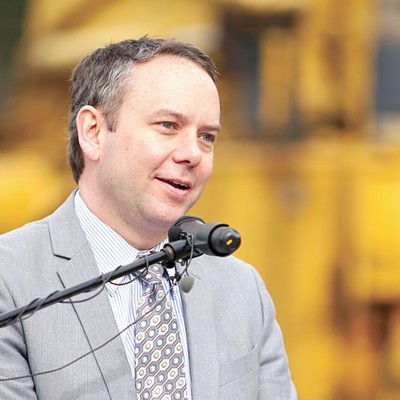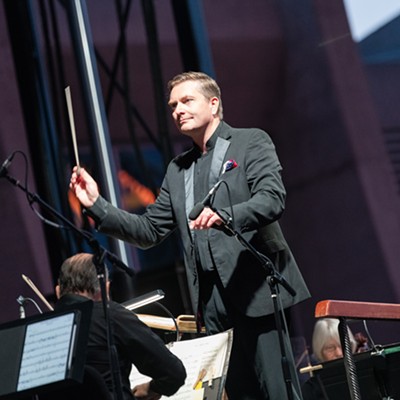Thursday, July 9, 2015
Forget “wide-ranging interviews” of politicians. Go narrow and deep.
Tuesday night, CNN landed a rare thing indeed: A full-length interview with presidential candidate Hillary Clinton.
The reviews were mixed: Baltimore Sun TV critic David Zurawik praised journalist Brianna Keilar for “asking hard questions,” while conservatives lambasted it as “softball.”
I saw it as suffering from a different problem. Within the span of 19 minutes, Keilar asked about Clinton’s e-mail scandal, the Clinton Foundation, Bernie Sanders, Donald Trump, corporate taxes, her trustworthiness, her Republican rivals, sanctuary cities, her treatment of the media, which woman should be on the $10 bill, and who did the better Hillary on Saturday Night Live, Kate or Amy?
It was, in other words, the “wide-ranging” interview of a politician. The problem is that there are too many wide-ranging interviews of politicians, and not enough deep-digging ones.
This gets to conservative critiques that Keilar didn’t ask the right follow-up questions. It could be because Keilar was ill-prepared. Or it could be because Keiler had a list of topics she had to cover and needed to get to the next one.
That’s the issue with wide-ranging interviews: Politicians that like to dodge or filibuster can more easily duck, weave or stall on topics to get out of putting forth substance on topics they don’t want to talk about. Clinton, of course, is known for being reluctant to take a detailed stand even on subjects as trivial as which woman she’d like to see on U.S. currency or her favorite ice cream flavor.
Keilar could have taken one topic: (Hint: Not Donald Trump) and lasered in on that instead. It doesn’t have to be e-mails. It could be transparency in general. Or her views on Iran. Or Syria. Or the Trans-Pacific Partnership. Or immigration. Or legislation pertaining to Wall Street. Or tax reform. And spend the next 20 minutes talking about that.
Look at how great this interview with Jeffrey Goldberg and President Obama is. Goldberg had an hour with the president, not an easy thing to get. But instead of skipping along the surface of numerous issues, Goldberg homed in on one: The Middle East.
But Goldberg is a foreign policy expert, especially with the Middle East. The disadvantage that many journalists have is that they, myself included, are generalists. We know a little about a wide range of things. Diving deep on live television can just as easily expose the ignorance of the reporter as of the subject. (Print is much more forgiving of stupid questions, so I try to ask such questions as often as possible. It’s how I learn!)
Wide-ranging interviews are the quick and easy path. They give viewers who may not be interested in some topics other topics to latch onto. They allow grit to be mixed with fluff, fastballs to be varied with softballs. And by mixing topics that a source likes with topics they may not, it preserves “access,” that powerful influence that powerful people have with journalists. Ask tough questions, publish something they don’t like, and they could retaliate by refusing to talk to you ever again. Have fun watching your competitors get the exclusive interviews from now on.
You or your producer can brainstorm 20 surface-level “wide-ranging” questions in five minutes, easy. Diving deep takes a lot more background knowledge.
But that can be worth it. See how hawkish talk radio host Hugh Hewitt exposes the limited foreign-policy chops of presidential candidate Ben Carson. They weren't "gotcha" questions, but they also weren’t easy. The interview spread across other media outlets not because Carson made an unforced gaffe, but because Hewitt focused enough to ask substantive questions that highlighted real weaknesses in Carson’s understanding of the world.
Or, heck, sticking with Clinton, check out Terry Gross challenging Clinton on her history of support (or lack thereof) for gays, lesbians, and transgender rights. It’s hardly the only topic in her interview, but she devotes enough time to really dive down into Clinton’s record on the matter. She isn’t satisfied with dodges or canned answers.
Even focusing narrowly on getting a straight answer to a single question can be worth it. Watch this famous interaction with a BBC Newsnight reporter asking British Home Secretary Michael Howard the exact same question 12 separate times. Howard’s evasions are made painfully clear. By the 12th time, Howard’s non-answer answers the question with elegant clarity.
That doesn’t mean that diving deep on a single topic always hurts a politician. It can just easily crystallize their vision or show their command of the subject matter. John Dickerson, new host of Face the Nation, says this on Wednesday’s episode of the Whistlestop podcast, in a section about a famous 60 Minutes segment interview focusing entirely on Bill Clinton’s infidelity:
“Only when you’re being asked probing questions — tough, probing questions — does the candidate have a chance to respond with forceful answers which then become memorable. It’s like hitting off of a fast pitcher. The ball goes farther when you finally do make contact.”
Tags: media criticism; Hillary clinton; CNN; Journalism , News , Comment , Image





















